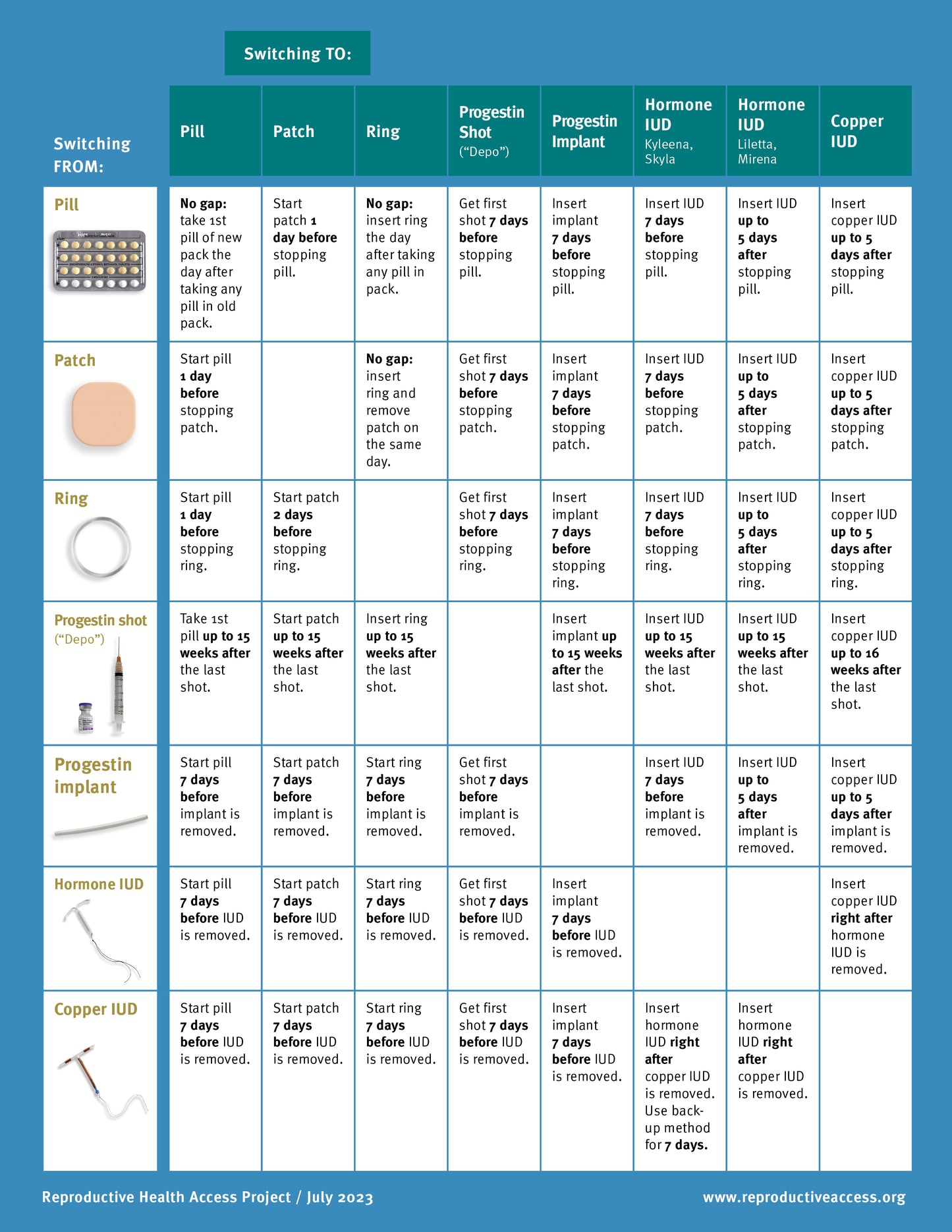Access To Birth Control: Examining The Impact Of Over-the-Counter Availability Post-Roe

Table of Contents
Enhanced Access and Convenience: The Promise of Over-the-Counter Birth Control
The shift to OTC birth control promises to revolutionize access and convenience, particularly for those currently facing significant barriers.
Increased Accessibility for Underserved Populations
Geographical limitations significantly impact access to reproductive healthcare. Many rural communities lack sufficient clinics, forcing individuals to travel long distances for appointments – a considerable hurdle for those with limited transportation resources or financial constraints. Low-income individuals and those lacking health insurance often face insurmountable barriers to accessing birth control. Long clinic wait times further exacerbate the issue.
- Improved access for marginalized communities: OTC birth control removes geographical and financial limitations.
- Reduced reliance on appointments: Individuals can obtain birth control at their convenience, eliminating scheduling conflicts.
- Increased convenience for busy individuals: Access to birth control becomes integrated into daily life, rather than requiring a dedicated appointment.
Empowering Individuals Through Self-Management
Self-management of reproductive health empowers individuals to take control of their bodies and futures. OTC birth control fosters autonomy, allowing individuals to make informed decisions about their reproductive health without navigating potentially stigmatizing or inconvenient clinic visits.
- Increased patient agency: Individuals make choices about their own bodies without external gatekeepers.
- Reduced healthcare provider dependence: Access to birth control is independent of healthcare system limitations.
- Enhanced reproductive health literacy: Increased access necessitates clearer and more accessible information for responsible use.
Potential Challenges and Concerns Regarding OTC Birth Control
While the advantages of OTC birth control are considerable, potential challenges need careful consideration.
Misinformation and Improper Use
A key concern revolves around the potential for misuse or incorrect usage of birth control pills without proper medical guidance. The proliferation of misinformation online exacerbates this risk. Comprehensive education and clear labeling are essential to mitigate these risks.
- Need for patient education programs: Public health campaigns are crucial for safe and effective use.
- Role of accurate labeling and packaging: Clear instructions and warnings are critical for minimizing misuse.
- Potential for increased unintended pregnancies from misuse: Addressing this risk requires proactive and multifaceted strategies.
Cost and Affordability Concerns
While OTC access enhances convenience, the cost of birth control remains a significant barrier for many. Ensuring affordability requires addressing potential price gouging and advocating for government subsidies or insurance coverage to make OTC birth control accessible to all income levels.
- The need for affordable OTC birth control: Pricing strategies must ensure equitable access.
- Role of government subsidies and insurance coverage: Public funding is crucial for equitable access.
- Impact on overall healthcare costs: Analyzing the long-term cost-effectiveness is crucial for informed policy decisions.
The Broader Public Health Implications of Increased Access to Birth Control
Increased access to birth control has profound implications for public health.
Reduced Unintended Pregnancies and Abortions
Improved contraceptive access directly correlates with reduced rates of unintended pregnancies. This, in turn, has a significant impact on abortion rates, reducing the need for abortion services and improving maternal and child health outcomes.
- Decreased rates of unintended pregnancies: Easy access directly contributes to fewer unplanned pregnancies.
- Reduced abortion rates: Preventing unintended pregnancies significantly reduces the demand for abortions.
- Improved maternal and child health: Fewer unintended pregnancies lead to healthier pregnancies and births.
Long-Term Impact on Population Health and Healthcare Costs
The long-term economic benefits of reduced unintended pregnancies are substantial. The healthcare system will experience significant cost savings associated with reduced prenatal and postnatal care, as well as fewer complications related to unintended pregnancies. A healthier population contributes positively to the overall societal well-being.
- Lower healthcare costs: Reduced demand for services related to unintended pregnancies translates into significant savings.
- Improved population health outcomes: A healthier population leads to a more productive and thriving society.
- Positive societal impact: Empowered individuals contribute to a stronger and more equitable society.
Securing Reproductive Freedom Through Accessible Birth Control
The potential benefits of over-the-counter birth control are significant, although challenges related to misuse and affordability must be addressed proactively. Increased access to birth control, particularly through OTC options, is a critical component of comprehensive reproductive healthcare. Comprehensive education campaigns, affordable options, and ongoing research are essential to maximize the positive impacts of this policy change. We must advocate for policies that support expanded access to birth control, including over-the-counter options, ensuring everyone has the right to make informed decisions about their reproductive health. Support initiatives that promote the responsible use of birth control methods and access to accurate information about contraception.

Featured Posts
-
 Olly Alexander Live At 3 Olympia Theatre Picture Gallery
May 30, 2025
Olly Alexander Live At 3 Olympia Theatre Picture Gallery
May 30, 2025 -
 Ti Na Deite To Savvato 5 Aprilioy Olokliromenos Odigos Tileorasis
May 30, 2025
Ti Na Deite To Savvato 5 Aprilioy Olokliromenos Odigos Tileorasis
May 30, 2025 -
 Elevated Uncertainty The Growing Risks Of Higher Inflation And Job Losses
May 30, 2025
Elevated Uncertainty The Growing Risks Of Higher Inflation And Job Losses
May 30, 2025 -
 Intet Er Besluttet Endnu Eksperternes Bud Pa Udfaldet
May 30, 2025
Intet Er Besluttet Endnu Eksperternes Bud Pa Udfaldet
May 30, 2025 -
 Guillermo Del Toro On The Best Game World Ever Created
May 30, 2025
Guillermo Del Toro On The Best Game World Ever Created
May 30, 2025
Latest Posts
-
 Part Time Gig In Cleveland For Former Fox19 Meteorologist
May 31, 2025
Part Time Gig In Cleveland For Former Fox19 Meteorologist
May 31, 2025 -
 Cleveland Gains Part Time Meteorologist From Fox19
May 31, 2025
Cleveland Gains Part Time Meteorologist From Fox19
May 31, 2025 -
 Former Fox19 Meteorologist Takes Part Time Cleveland Position
May 31, 2025
Former Fox19 Meteorologist Takes Part Time Cleveland Position
May 31, 2025 -
 Nyt Mini Crossword Hints And Answers For March 24 2025
May 31, 2025
Nyt Mini Crossword Hints And Answers For March 24 2025
May 31, 2025 -
 Nyt Mini Crossword Thursday April 10 Clues And Solutions
May 31, 2025
Nyt Mini Crossword Thursday April 10 Clues And Solutions
May 31, 2025
